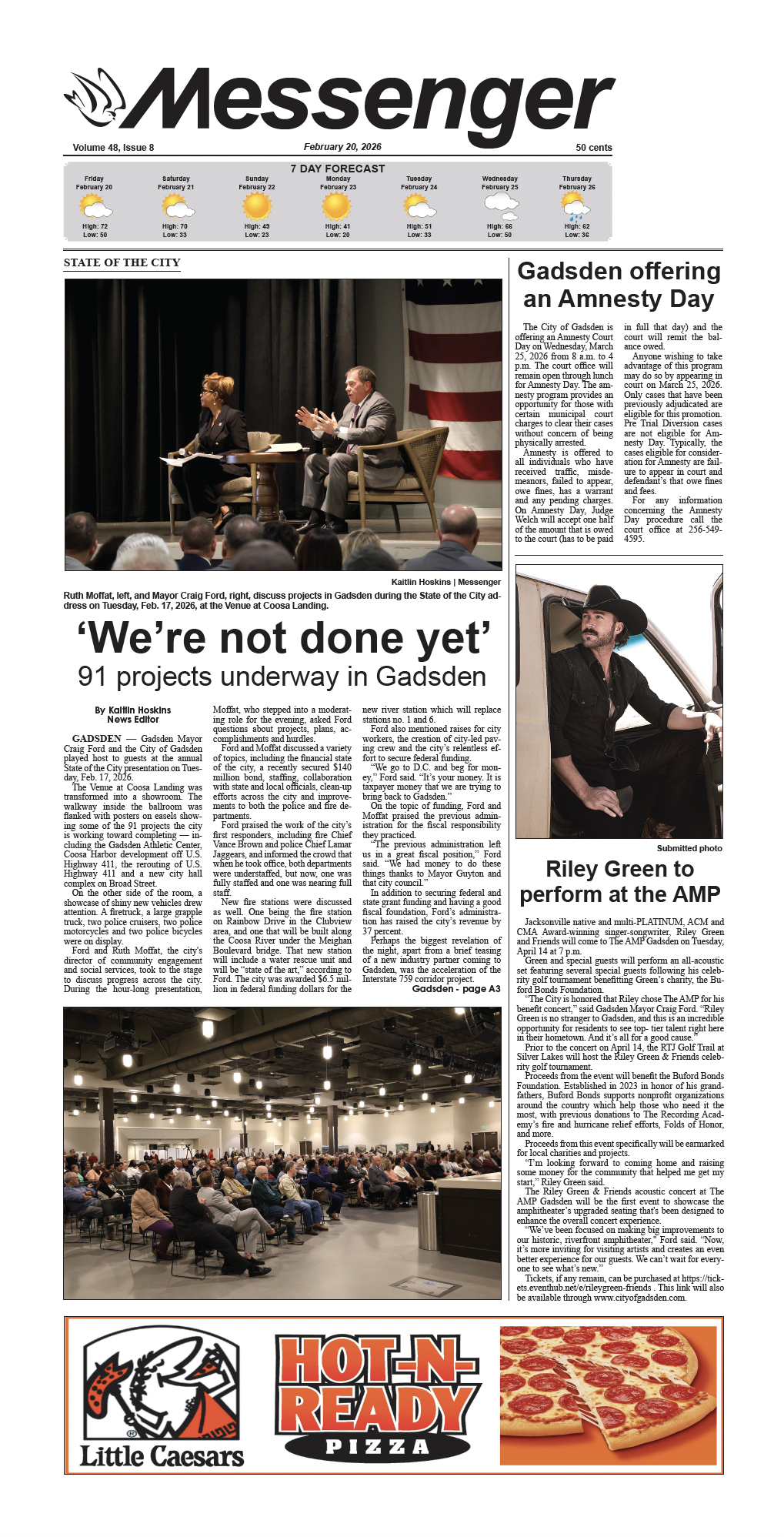By Sarrah Peters, News Editor
On Friday, September 7, the Gadsden Museum of Art opened a new exhibit titled “Korean Dreams” by photographer Nathalie Daoust. The exhibit will be open until October 29.
“Korean Dreams” uses photos to capture life in North Korea. Because foreigners are closely monitored and only allowed to take photos in approved locations, Daoust used a hidden camera to secretly take photos in non-approved areas.
The exhibit provides a lot of information about life in North Korea. North Korea’s Supreme Leader from 1994 until 2011, Kim Jung-Il, established a repressive, controlling regime over the country. He named his son Kim Jung-un as his successor and was named Supreme Leader following his father’s death in late 2011. Although elections are held every five years and every citizen is required to vote, the ballot lists only one candidate. Elections are mainly used to track citizens and identify possible defectors.
Daoust documents the country’s prison and concentration camps, 16 of which are confirmed to exist. An estimated 200,000 men, women and children are forced to do slave work and are tortured, for supposed crimes such as using a newspaper with the country’s dictator Kim Jong-Il to clean a spill. North Korea law uses three generations of punishment for crimes, meaning that if someone is deemed guilty of a crime their children and grandchildren will often spend a lifetime as prisoners.
Daoust documented the plight of women in North Korea, including the Pleasure Brigade, a group of 2,000 women and girls that are forced to provide entertainment and pleasure, mostly sexually, for officials, their families and sometimes distinguished guests. Women are also forbidden to ride bicycles and usually forbidden to drive.
However, women are not the only ones who face restrictions. North Korean leaders impose a three-caste system called Songbung. Citizens are deemed friendly, neutral or enemy based on family history. The caste system determines whether people will have access to education, employment opportunities and membership in the ruling party. Each citizen must complete mandatory military service, with women obligated to serve seven years and men forced to serve 10 years. After completion of service, all must join a military reserve until the age of 60.
North Koreans are not free to move to different cities or areas. Forced relocation to less favorable parts of the country is a common punishment. Free speech and assembly, though guaranteed in the constitution, are not tolerated if it is in any way a challenge or criticism of the regime. Most North Koreans also live in severe poverty, each month earning on average from $100 to as little as $1. Food rationing is common and widespread.
North Korean hospitals often have no electricity or heat. Although free health care was established in 1947, the system collapsed in the 1980s and patients must now pay for medicines. Officials claim that no handicapped children have been born in North Korea since the 1950s because of “strong genes.” However, a North Korean defector who was a doctor has said that babies with physical defects are put to death.
Even children are subject to the strict rule of the regime. Children attend school, which is mandatory and includes a three-year course on Kim Jung-un. Being selected for a performance is considered an honor for children but can be grueling. Children are expected to perform complex routines near perfectly. To instill discipline, food, water and bathroom access is withheld.
Daoust’s photos are purposely obscured, leaving behind blurry, vague photos that obscure the truth, just as the North Korean government does.
For more information, visit gadsdenmuseum.com/exhibits/korean-dreams.




